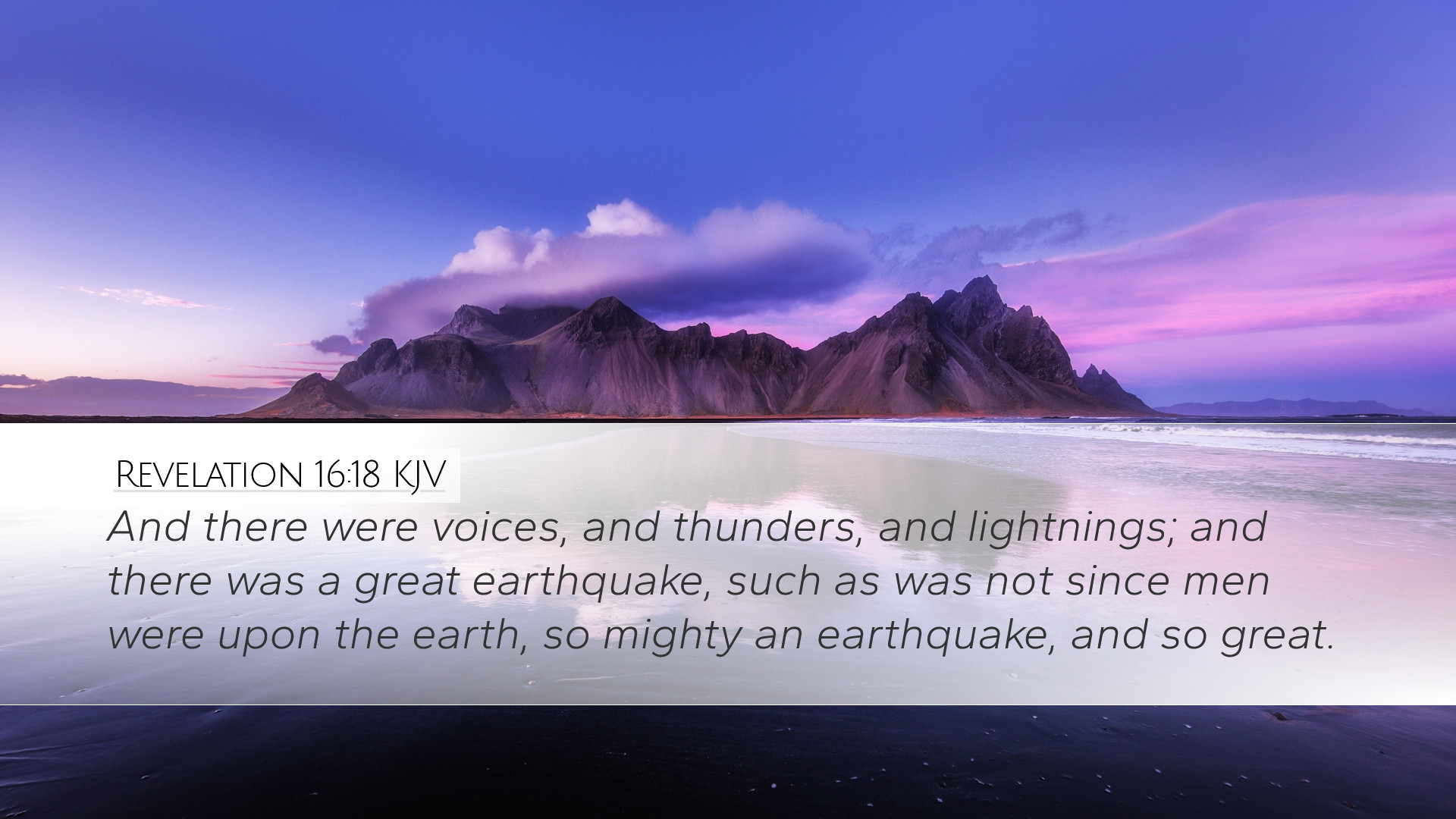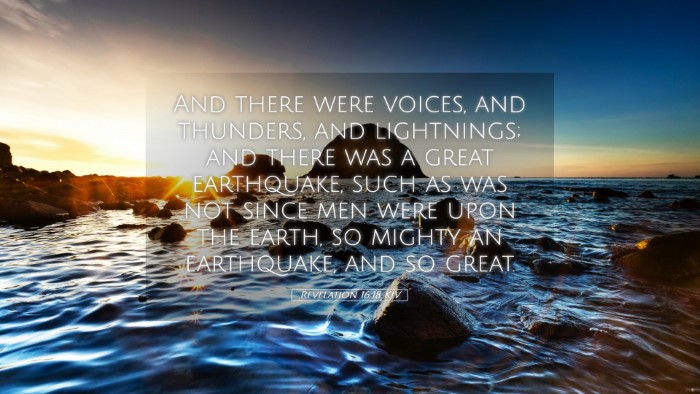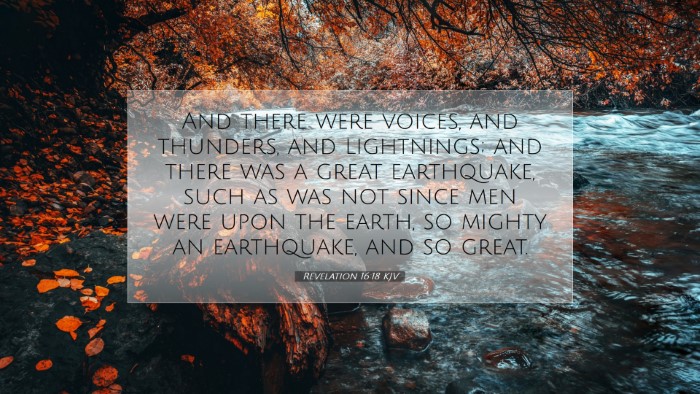Bible Commentary on Revelation 16:18
Verse Text: "And there were voices, and thunders, and lightnings; and there was a great earthquake, such as was not since men were upon the earth, so mighty an earthquake, and so great."
Introduction
The verse from Revelation 16:18 encapsulates a moment of profound divine intervention and cosmic disturbance. It is part of the seventh bowl judgment, which signifies the culmination of God's wrath upon the earth. This moment serves as a warning and a signal of the finality of God's judgment against sin and rebellion. Commentators such as Matthew Henry, Albert Barnes, and Adam Clarke provide valuable insights into the implications of this verse.
Divine Manifestation
The phrase “there were voices, and thunders, and lightnings” suggests a powerful manifestation of God's presence. It mirrors the way God revealed Himself at Mount Sinai (Exodus 19:16-19), where the Divine encountered the people amidst thunder and lightning. Albert Barnes emphasizes that such phenomena indicate God's majesty and the serious nature of His judgments.
Lightning often symbolizes judgment and the presence of God in both the Old and New Testaments. Adam Clarke notes that the signs of thunder and lightning preempt significant announcements of divine will, depicting the intense nature of the apocalypse. In this context, it evokes fear and awe among humanity, urging a response to the impending judgment.
The Earthquake: A Sign of Catastrophic Change
The “great earthquake” mentioned is a hallmark of the severity of the times. Matthew Henry likens this earthquake to events of biblical significance, suggesting it represents a shaking not only of the earth but of the very foundations of human society. This seismic event is an indication of moral and spiritual upheaval.
Clarke observes that the language “such as was not since men were upon the earth” conveys a transcendental reality—suggesting a cataclysm so profound that it surpasses any prior event in human experience. This notion serves as a reminder to both the faithful and the unfaithful of God’s ultimate authority over creation and historical realities.
Theological Implications
This verse raises central theological questions concerning judgment, mercy, and the nature of God's interaction with the world. Henry reflects on how divine judgment serves as a call to repentance, invigorating believers to recognize their own fragility amidst such cosmic events. The overwhelming power demonstrated here serves to underline God’s sovereignty and serve as a warning to those who reject His authorities.
Barnes adds that the magnitude of this earthquake illustrates the ultimate consequence of sin; it reveals how rebellion against God disrupts the created order, leading to both spiritual and physical devastation. This catastrophic event is not merely a natural disaster but a divine announcement that creation is responding to its Creator's command.
Human Response
In light of such apocalyptic imagery, understanding the human response is pivotal. Revelation frequently depicts humanity's struggle to confront the unfolding judgments. The imagery evokes fear, awe, and, ideally, a turn toward God. However, Clarke notes that many may instead harden their hearts, rejecting the divine warnings despite overwhelming evidence of God's power.
- Fear of the Lord: Believers are encouraged to approach God's manifestations with reverence and a readiness to repent.
- A Call to Repentance: Pastors and theologians interpret these events as reminders of the need to turn towards God and seek reconciliation.
- Awareness of Judgment: Students of scripture are reminded that judgment is certain, and the signs are a clarion call for vigilance.
Conclusion
Revelation 16:18 encapsulates a climactic moment in eschatological prophecy, merging the elements of divine wrath, cosmic disturbance, and the urgent call to repent. The insights from the public domain commentaries of Henry, Barnes, and Clarke provide comprehensive viewpoints that offer depth to this verse, making it profoundly meaningful for pastors, students, theologians, and Bible scholars alike.
As we meditate on this verse, let us embrace the gravity of God's judgments while steadfastly holding onto His mercy and grace. The turbulence of creation calls us to a posture of humility and dependence on the Divine, anticipating both the justice and restoration that comes from God in the end times.


